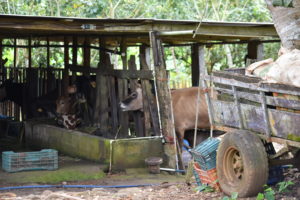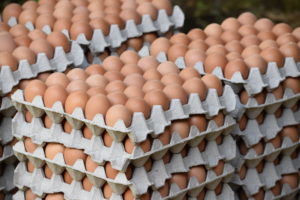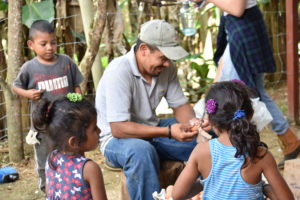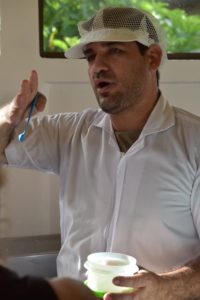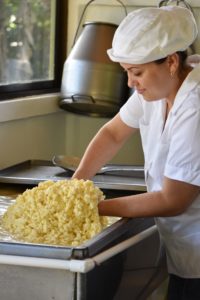Individualism, in a broad sense, can be defined as the principle of being independent and self-reliant. It is a social theory favoring freedom of action for individuals over collective or state control. As I reflect upon these definitions, the one term that continually runs through my mind is the term “self-sustainability”. In Costa Rican culture, a fine example of individualism and self-sustainability can be found within the practice of farming.
Surprisingly, more than one-fifth of the labor force in Costa Rica belongs to that of the farming occupation, making agriculture an extremely important national asset. However, the makeup of these farms are far more interesting than one might expect. Many Costa Rican farms range from three to ten hectares and are family-owned and operated, with no distinct specialization in product type. Because the main goal of these farms is self-sustainability, many different crops and animals are grown to ensure both a balanced diet and diversity on the dinner table. First and foremost, these farms are worked by families to feed and care for their own. What is set aside after personal utilization and consumption is then sold. When one works on a farm, they are not working a profit – they are, most importantly, working to live. For this reason, the poverty level in Costa Rica sits at a much higher rate than the nation’s hunger level.
After a few brief visits to small family farms in Costa Rica, it became readily apparent that being self-reliant by growing and harvesting for oneself is not just a job, it is a way of life. In this culture, it is not just one family member who takes on the everyday endeavors of the farm, but every family member. Each day, fathers, mothers, aunts, uncles, cousins, and even small children contribute their time and effort to help with farm chores.
Chrisley, a local dairy farmer, runs a three hectare farming operation alongside his family outside of San Jose, Costa Rica. His farm has many assets, including milk, pork, poultry, and crop production. Each day Chrisley and his wife Patricia, along with their three children, tend to the farm, milking dairy cows, making cheese, collecting eggs, harvesting crops, and feeding the many animals that rely on their care.
The only day of rest for his family is on Sunday, when they attend church and spend quality time as a family with their friends and the rest of the community. The other six days of the week, the united family labors over the farm’s many chores, with the biggest tasks being linked to dairy production.
Each week, the family sells an average of 350 balls of mozzarella cheese, of which sixty-six percent of it is bought by a ‘middle man’. Interestingly enough, this ‘middle man’ then sells the product for nearly double the price at the market. When asked why he did not sell directly to the market for full profit instead of selling to a middle man, Chrisley provided a response that both touched my heart and shook my American-oriented mindset. “It is not about the profit,” said Chrisley, “it is about the community”. Because of the selflessness of this farmer and his family, more jobs are created so the local community can succeed as a whole. For this reason, I believe the best example of individualism comes from independent and selfless farmers like Chrisley.
